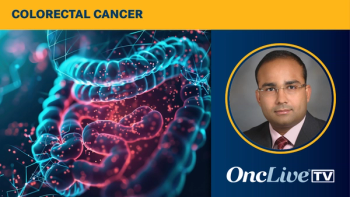
Dr. Camidge on the ALEX Trial in Patients With ALK+ NSCLC
David Ross Camidge, MD, PhD, professor, Division of Medical Oncology, Joyce Zeff Chair in Lung Cancer Research, School of Medicine, Division of Medical Oncology, University of Colorado, discusses the updated efficacy and safety data from the global phase III ALEX study of alectinib (Alecensa) versus crizotinib (Xalkori) in untreated advanced ALK-positive non–small cell lung cancer (NSCLC).
David Ross Camidge, MD, PhD, professor, Division of Medical Oncology, Joyce Zeff Chair in Lung Cancer Research, School of Medicine, Division of Medical Oncology, University of Colorado, discusses the updated efficacy and safety data from the global phase III ALEX study of alectinib (Alecensa) versus crizotinib (Xalkori) in untreated advanced ALK-positive non—small cell lung cancer (NSCLC).
This study was designed to evaluate which agent possessed the better investigator assessed progression-free survival (PFS), says Camidge. The trial was deemed positive at the 2017 ASCO Annual Meeting. At that time, the hazard ratio was 0.47, but the median PFS had not yet been reached. The secondary endpoint, which was assessed by an independent radiology review committee, found a median PFS of about 24 to 25 months. Findings presented at the 2018 ASCO Annual Meeting showed more than 20 months follow-up on the investigator-assessed endpoint. The hazard ratio dropped to 0.43 with a median PFS of 34.8 months.
Although investigator-assessed endpoints are less stringent that those conducted by independent radiology review committees, Camidge states that the data were pulled from the flat part of the PFS curve in which patients are unlikely to shift from the median significantly. Reflecting an average of 3 years of disease control, Camidge states that the study helps solidify alectinib as the preferred first-line agent in this population.



































